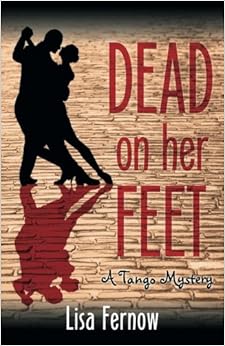.jpg)
One of the highlights of the recent Bouchercon, as fas I am concerned, was getting to meet Thomas Perry Actually meet is probably too strong a word,. In reality I shook his hand while gushing a lot of very sincere compliments. He's probably my favorite living mystery writer with whom I had never before had personal contact.
And if you look at the compilation I did here of wisdom from the conference you will see that I quoted him frequently. But there was one lovely line which I set aside in my notebook in order to give it its own consideration. And that time has come.
On one panel Perry reported that a reviewer had described his novel The Butcher Boy as "competence porn."
 That struck me as perfect. The Butcher's Boy
is the first of three novels about a hitman known only by that
nickname. And BB, if I may be overly familiar, is staggeringly
competent at his job, the kind of guy who can kill a motel full of mob leaders one
by one without being noticed.
That struck me as perfect. The Butcher's Boy
is the first of three novels about a hitman known only by that
nickname. And BB, if I may be overly familiar, is staggeringly
competent at his job, the kind of guy who can kill a motel full of mob leaders one
by one without being noticed.It struck me that there is a lot of competence porn out there, so there must be a market for it. Another example is Perry's books about Jane Whitefield, who is a sort of anti-detective. (Instead of finding criminals, she helps them disappear… but only if their crime is small compared to the danger they face.) And while Jane does make mistakes (my favorite book in the series begins with her falling into a trap that gets two colleagues killed) the major fascination in the books is her training her "runners" in the minutiae they need to keep in mind to avoid the bad guys who want them dead.
I am halfway through the latest Whitefield book, A String of Beads, in which she tells a construction worker, wanted for a murder he didn't commit, to dress and think like a businessman, and to go back to college, because no one would look for a runaway there. Those are just a couple of details out of a thousand.
Another example of competence porn: the Parker novels by Richard Stark (Donald E. Westlake). Parker the thief is always the best crook in the string, and better at what he does than the cops are at theirs. The reason he gets in trouble (so that the books don't end around chapter 4) is that he has to work with people who are not as competent nor as ethical (in terms of treating their partners) as he is. I tried to think of mistakes he made and came up with two; in both cases the goof was not killing someone. Welcome to Parker's world.
 I suspect that a lot of the books called techno-thrillers are competence porn, but I don't read them, so I wouldn't know. Your thoughts on all this are most welcome.
I suspect that a lot of the books called techno-thrillers are competence porn, but I don't read them, so I wouldn't know. Your thoughts on all this are most welcome.And that brings me to another related subject. A few weeks ago someone on FaceBook was complaining about the use of "porn" to describe something, well, attractive but bad for you. Like competence porn, for example, or as they describe musical instrument catalogs in my crowd, guitar porn. The complainer was tired of the phrase and I think didn't appreciate associating pornography with these other interests.
And that reminds me of the recent pieces by Melodie and Fran in which they each used the term "literary sluts" to describe themselves, because they write in several fields. One of the commentators, Anonymous, said:
This really shows me how different writing is as a profession from the sciences. (Not that you asked.) I am a woman scientist and we are constantly fighting NOT to be thought of as sluts of any kind, especially not in a supposedly joking manner (which is what our male colleagues say, is that they are just joking around). If you read the way Watson and Crick talk about Rosalind Franklin in "The Double Helix" you will see what I mean -- and things have NOT changed since then. Some of our younger woman scientists have tried to adopt this playful language, which embeds a sort of alternative approach to being a woman in science the way that they do it, and it's destroyed their careers. So the idea that women are so well-established in the writing profession that you all can afford to use this kind of language is just mind-blowing to me.
Of course, mystery writing has had issues with sexual discrimination (look up the origin of Sisters in Crime), but is Everything Just Fine now? I'm not the person to judge.
So, how do you feel about the term "slut" in this case? Is it "taking back the word" as some marginalized groups have said about their use of epithets? Or a harmful dead end?
While you debate this I am going to go finish reading A String of Beads.






























